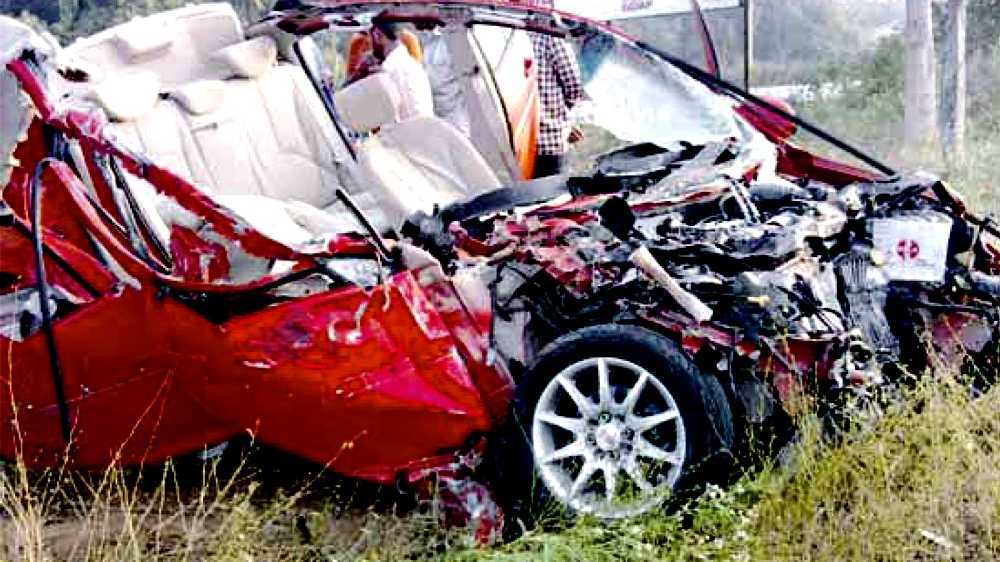Nikki Catsouras' death in 2006 shocked her family and friends, sparking a conversation about privacy and the ethical boundaries of sharing sensitive content online. Her tragic story is intertwined with themes of grief and the consequences of digital culture. As the internet became a platform for both memorialization and exploitation, Nikki's name became synonymous with a harrowing narrative that continues to resonate today.
Nikki, just 18 years old at the time of her death, became the subject of an online phenomenon that brought to light the darker side of the internet. In a world where information spreads rapidly, Nikki's family faced the unimaginable pain of their daughter's death, compounded by the unsolicited sharing of graphic images following her tragic car accident. This article delves into the life of Nikki Catsouras, the circumstances surrounding her death, and the ongoing discussions about privacy in the digital age.
As we explore Nikki's story, we must confront the realities of how the internet can both commemorate a life lost and contribute to the trauma of those left behind. The narrative of Nikki Catsouras serves as a crucial reminder of the importance of compassion and respect when dealing with sensitive matters, particularly in an age where information is just a click away.
What Happened to Nikki Catsouras?
Nikki Catsouras was involved in a fatal car accident on October 31, 2006. Driving her father's Porsche 911 at high speeds, she lost control of the vehicle, resulting in a catastrophic crash. The circumstances surrounding her death were tragic, but they were only the beginning of a harrowing ordeal for her family. After the accident, graphic images taken at the scene were circulated online, leading to significant distress for her loved ones.
What Were the Circumstances of Nikki's Accident?
The accident occurred on a California freeway, where Nikki was driving at a high rate of speed. The car collided with a concrete barrier, leading to a fatal outcome. Despite the tragic nature of the accident, the aftermath revealed an even darker side of the internet. Images from the crash site quickly spread across various platforms, raising questions about ethics and the responsibility of those who shared them.
How Did Nikki's Family React to Her Death?
The Catsouras family was devastated by Nikki's death. They not only had to cope with their loss but also the invasion of privacy that followed. The dissemination of graphic images of Nikki's body added an additional layer of trauma for her parents and siblings. Their mourning was compounded by the knowledge that their daughter's final moments were being exploited for shock value online.
Who Was Nikki Catsouras? A Brief Biography
| Detail | Description |
|---|---|
| Name | Nikki Catsouras |
| Date of Birth | February 2, 1988 |
| Date of Death | October 31, 2006 |
| Age at Death | 18 years old |
| Occupation | High School Student |
| Location | Laguna Niguel, California |
What Impact Did Nikki Catsouras' Death Have on Society?
The tragic death of Nikki Catsouras highlighted significant issues regarding privacy, particularly in the context of social media and online sharing. The images of Nikki that circulated without her family's consent brought to light the ethical dilemmas surrounding graphic content and the responsibility of individuals when it comes to sharing such material. It sparked discussions about the need for stricter regulations on privacy rights, especially concerning sensitive information about deceased individuals.
How Did the Media and Public Respond?
The media coverage of Nikki's death was extensive, with various outlets discussing both the accident and the ensuing controversy over the graphic images. Public opinion was divided; while many expressed outrage over the exploitation of Nikki's tragic story, others engaged in the sharing and viewing of the images, further perpetuating the cycle of trauma for her family. This duality in response illustrates the complex relationship society has with tragedy, mortality, and the internet.
What Legal Actions Did the Catsouras Family Take?
In response to the graphic images being shared, the Catsouras family took legal action against several individuals and entities involved in the dissemination of the photos. They sought damages for emotional distress, arguing that the sharing of these images constituted an invasion of privacy. Their efforts aimed not only for personal justice but also to raise awareness about the need for legal protections against the non-consensual sharing of sensitive content online.
What Are the Broader Implications of Nikki's Story?
The story of Nikki Catsouras serves as a cautionary tale about the ramifications of online behavior and the need for a more humane approach to discussing death and tragedy. It raises critical questions about how society views and handles sensitive subjects, especially in the age of social media, where information can spread rapidly and without context. Nikki's legacy is a reminder of the importance of empathy and respect for the deceased and their families.
How Can We Honor Nikki's Memory?
To honor Nikki Catsouras' memory, it's essential to advocate for privacy rights and responsible sharing of information online. This can include:
- Promoting awareness about the impact of graphic content on families and communities.
- Encouraging discussions about ethics in media and online behavior.
- Supporting legislation that protects individuals' privacy, especially in cases of tragedy.
- Creating spaces for remembrance that focus on celebrating lives rather than sensationalizing deaths.
Nikki Catsouras' death was a profound tragedy that continues to resonate in discussions about privacy, ethics, and the responsibilities that come with sharing information in the digital age. By reflecting on her story, we can learn valuable lessons about compassion and the need to treat sensitive subjects with the dignity they deserve.
Unraveling The Phenomenon Of Viral MMS On Insta
Unveiling The Life Of Enedina Arellano Félix Hoje: A Journey Through Shadows And Power
Unveiling The Life And Achievements Of Sarah Gallup


